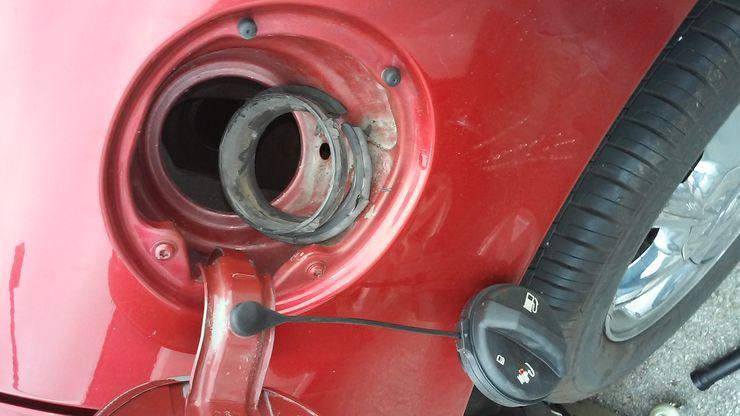
Why does my car smell like gasoline?
The smell of gasoline in the cabin is not such a rare automobile “sore”. As a rule, this is not just a nuisance for the nose, but also a symptom that prompts you to seriously worry about the state of the fuel system of the car.
The smell of gasoline in the cabin, as a rule, most often begins to pester the driver and passengers in the warm season. This is due to the fact that in the heat it evaporates more. In winter, a drop of gasoline leaking from somewhere would have remained unnoticed by anyone, and in the summer it literally hits the nose. One of the first places you should check out when you smell the suffocating smell of gasoline in the cabin is the gas tank filler neck. On many cars, it is welded to the tank.
Over time, from shaking and vibrations on the go, the welding seam can crack and not only vapors but also gasoline splashes can fly out through the opened hole. Then, especially in a traffic jam or at a traffic light, they are sucked into the ventilation system in the car interior. And the filler cap itself must tightly close its opening. In addition, modern cars have special devices that trap gasoline vapors. But any device can fail sooner or later. And this can manifest itself precisely in the summer, when gasoline in a gas tank heated by heat evaporates most of all and the vapors create increased pressure there. It allows them to break out, including into the cabin.
One of the reasons for the smell of gasoline in the cabin may be a malfunction of the exhaust gas catalyst. Its purpose is to burn the mixture leaving the motor to the state of inert oxides. An old and clogged catalyst will not cope with this task, and particles of unburned fuel can end up in the atmosphere, and then in the cabin. The same can be said about older cars, the owners of which replace their exhausted catalyst with an empty muffler “barrel”.
But the most dangerous cause of smell in the cabin is gasoline leaks from the fuel line. "Hole" can be in almost any part of it. In the hoses and seals of the fuel return pipe, in the connection between the fuel tank and the fuel pump housing. And the fuel tank itself and the fuel line can be damaged, for example, due to contacts with stones on the primer or during “jumps” along the curbs. By the way, the fuel filter itself can leak without any extraneous influences - if, as a result of regular refueling with disgusting quality fuel, it fails.